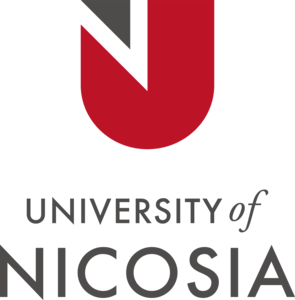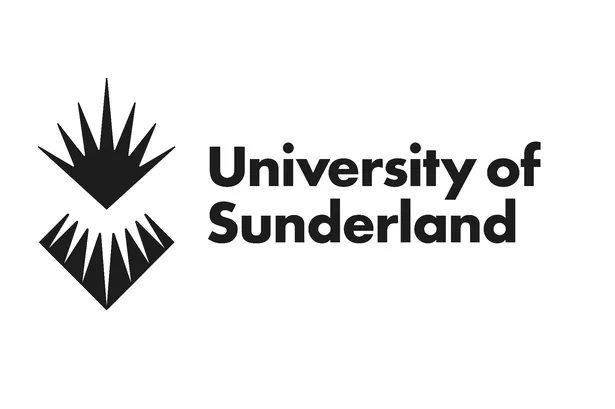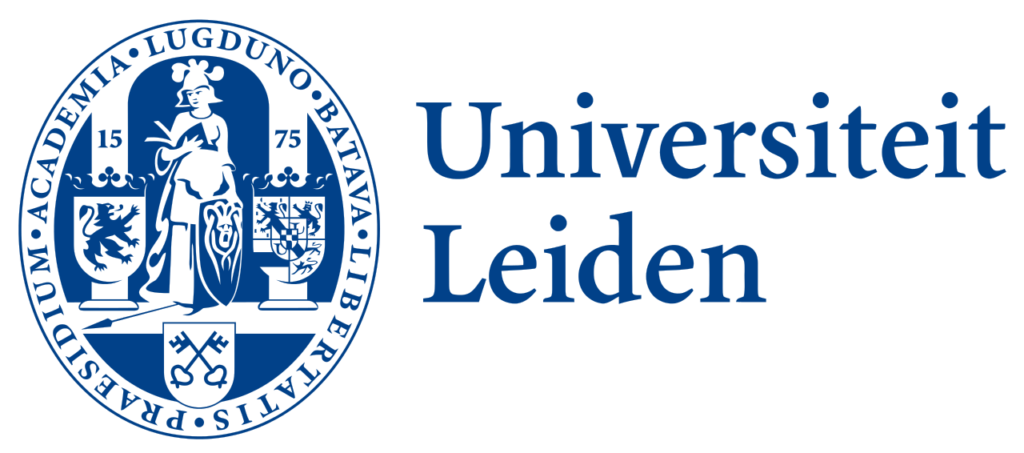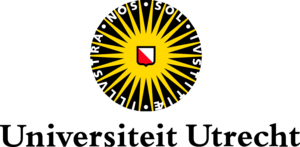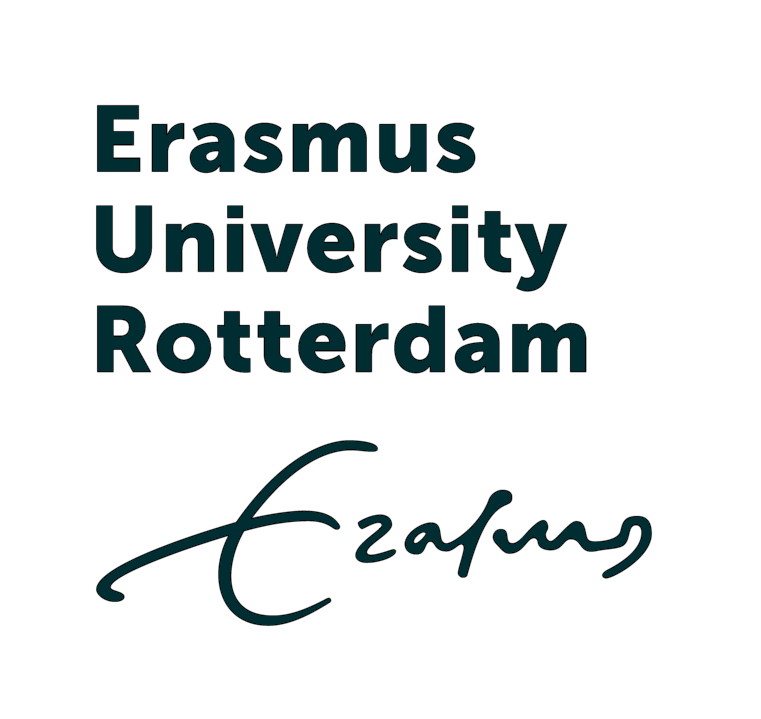What is Academic Life in Europe Really Like?
I have so much to report from my week in The Netherlands-it’s hard to know where to start! In addition to information about two schools that blew my socks off, I also want to give you some concrete examples of academic and student life. I’ll be sending emails with all of this information in the coming weeks, but let’s start with academic life.
I talk conceptually about the differences between academic life in the US and in Europe quite a bit. It can be difficult to wrap our brains around though. I thought it might be helpful to tell you a bit about what academic life looks like for my son, Sam, and other students in the International Studies program at Leiden University.
Let me begin my explaining a system in place at all schools throughout Europe. ECTS is the European system for calculating credits. The US system calculates credit hours based on how many hours you are physically in class (or supposed to be in class…). If you have a course worth 3 credits, that means that you are in class for 3 hours a week. Full time US students generally take between 12-15 credit hours per semester, meaning that they are in class for 12-15 hours per week. The European system calculates the total amount of time needed on the course-in and out of the classroom. A class that has a 3-hour lecture might have more out of class requirements than another, and this takes that into account. Each of Sam’s courses this semester is worth 5 credits (requiring 5 hours of weekly work in and out of the classroom), and full-time students take 30 credit hours a semester.
Leiden’s International Studies program is conducted in two buildings in The Hague. Both buildings are near the train station and right off the tram line that leads to any of the student residences. Sam usually walks to class, which takes about 15 minutes, though his friends and I are trying to talk him into biking (more on my evening with Sam and his friends in an upcoming post).
International Studies students don’t choose their language and region specialty until their second semester, so they all have the same courses the first semester. This means that the weekly lectures for each course are large, with all 500 of the first-year students.
Each course has a weekly lecture and also has a biweekly tutorial section. Almost all of the tutors are Ph.D.’s and many are lecturers for other courses as well. This is very different from the seminars I had in college that were led by graduate students. Tutorials have 12 students max and during the first semester students have all their tutorial classes with the same group of students. This allows a certain comfort level as they get used to the tutorial structure (which requires active participation) and gives them an academic community to access for assistance. Sam’s group is very international with students from Iceland, Slovakia, Germany, France, Dominican Republic, and the Netherlands. Tutorial counts for 30% of the grade in all of Sam’s courses. The tutorial grade is made up of attendance/participation as well as assignments which may include debates, presentations, or in class, group work.
There is one course that does not follow the above structure, which is Academic Reading and Writing. I can’t tell you how glad I am that this is a required course, as I feel like this area was really neglected in Sam’s high school curriculum! This class has about 25 students and meets weekly. Students learn strategies to read critically, structure academic papers, research, formulate a strong thesis, and even more specific writing techniques like cohesion within and between paragraphs and the like. This writing assignments are done using a text and concept from the Global History class. Sam’s group is working with Tonio Andrade’s book “The Gunpowder Age: China, Military Innovation, and the Rise of the West in World History”. There are three graded assignments for this course that lead up to a final essay which is worth 50% of the grade.
In addition to Academic Reading and Writing, all first year International Studies students take Sociolinguistics, Global History, Introduction to Cultural Studies, Introduction to International Studies, and Principles of Economics. Economics is one of Sam’s favorite courses, primarily because the lecturer is very engaging.
FREE INSIDER’S GUIDE
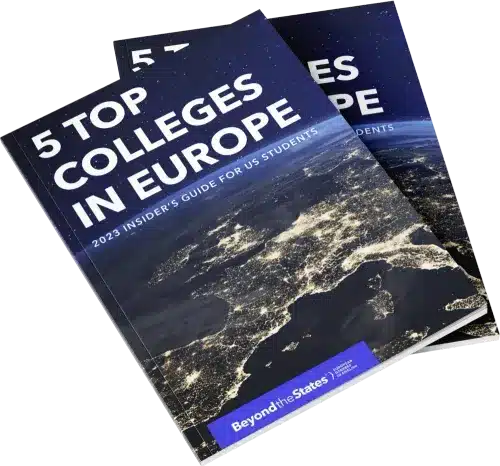
Top 5 English-Taught Colleges in Europe
Kickstart you education abroad with a powerful degree taught entirely in English, all without taking on any student loans!
International Studies is another one of his favorites and after reading the syllabus I totally understand why. I could sit and ponder the ideas presented in the syllabus alone for quite some time, so I can only imagine what the readings and lectures are like. I cited part of the syllabus in a previous post, because I love that one of the course objective is “to foster global positioning sensitivity based on an awareness that there is no single objective position from which to observe the world.” Don’t you just want to sit and think on that for a minute? Another little gem from the syllabus explains that the course “seeks to initiate a critical exploration of the making of ‘us’ and ‘them’ through an introduction to the methods and perspectives of a range of disciplines and the potential strengths of their (interdisciplinary) combination, thereby fostering a genuinely global, historically-informed awareness of what we share, what divides us, and the processes out of which the contemporary global order of nation-states emerged.”
Sam is struggling with Global History, which is surprising because it was one of his strengths in high school. It’s taught in a way that is interesting, but incredibly different than how he learned the topic in the past. Instead of exploring events, it’s more about exploring patterns of events in history. The syllabus states that “the aim is to examine connections between societies, cultures and regions, as well as their divergence. Based on a combination of a thematic structure and a focus on a particular region, the plenary lectures each week will aim to shed light on connections and comparison, as well as on similarities and divergence.” I think this way of looking at history is a great way to increase critical thinking skills.
Sam had midterms the week before I arrived and is pretty sure that he failed his Global History midterm. I fought my initial instinct (which was to freak out) and reminded myself of some important information. Most Dutch schools grade on a 10-point scale. Grade inflation simply isn’t a thing, as it is in the US. I met different students at different schools this week who had never met anyone who received a 10 and only a few knew students who had received a 9-ever! Most students shoot for about a 7, and an 8 is viewed as very good. A score of 5.5 is the minimum required to pass the course.
First year students at Dutch universities have something called Binding Study Advice (BSA) to contend with. Basically, though the admissions process is less rigorous, they must prove that they have what it takes to succeed during their first year of studies. At Leiden, students must finish the year with 45 ECTS. If they fail more than 3 classes, they will not be able to return the second year. This makes the stakes quite high, so you may be wondering why I didn’t follow my instinct and freak out about Sam’s midterm…
First of all, the midterm is 30% of the grade. He still has the final and tutorial to pull up the grade up to a 5.5+ total. Students are also offered the opportunity to re-sit for any course they don’t pass. This would mean going back in mid-late January (before classes start) and taking an exam that would be worth 70% of his grade (midterm+final together). If, God forbid, he still failed he could retake the course next year as he would be able to return as long as he doesn’t fail 3 courses.
Most programs publish the percentage of students who get positive study advice during the first year and continue on to the second year. The international studies program is at 85%. Do I think Sam needs better time management and study skills? Yes, definitely. Do I think he needs to reign in the amount of going out? Yes. But do I think that he will be with the other 85% of students who receive at least 45 ECTS? Yes.
Whew! Typing that all out was very cathartic and I’m feeling even better than I did with my self talk around this…I’m sitting in the airport lounge during a layover in London while I’m finishing typing this and sent an email to Sam a few minutes ago. He was not receptive to discussing changes he would make in person (I got a lot of “I know, Mom”- old habits die hard, I guess), so I thought I would send it in writing. There are resources that students can use at universities, but they have to be proactive about seeking them out. Sam knows where he could go for assistance with study skills and such, but asking for help is not one of his strengths. My email outlined changes I would like to see-from making an appointment with his study advisor for pointers about studying for Global History, to getting on a sleep schedule, to figuring out regular times and places to study that are conducive to focus and retention. I threw in a suggestion about daily consumption of fruits and vegetables, because I couldn’t help myself.
So why am I telling you about all of this? First of all, I always strive to be transparent about both the benefits and challenges related to studying in Europe. It will likely be challenging academically. Students who are accustomed to straight A’s will have a rude awakening. Students who have a hard time asking for help (looking at you, Sam) need to get over it and make themselves do it. Though it might be uncomfortable but nothing bad will come of asking for help. Worst case scenario is that it’s not helpful. Parents need to remind themselves that this is a different structure than we are accustomed to. The first year goal is about passing, and that in itself should be celebrated.
Sam is so happy with his life in The Hague and at Leiden that I don’t doubt he will do what he needs to get those 45 ECTS. He knows that if he doesn’t, he won’t be able to live this life that he’s creating for himself. Further, he knows that even if he does get positive binding study advice, he will be paying me back for any class he fails. Hoping that extra incentive helps him make the changes now, before first semester finals.
College in Europe can be hard. Parenting a college student can be hard. But I really love both!









